NASA moon rocket on track for launch despite lightning hits
Sunday, 28 August 2022 20:39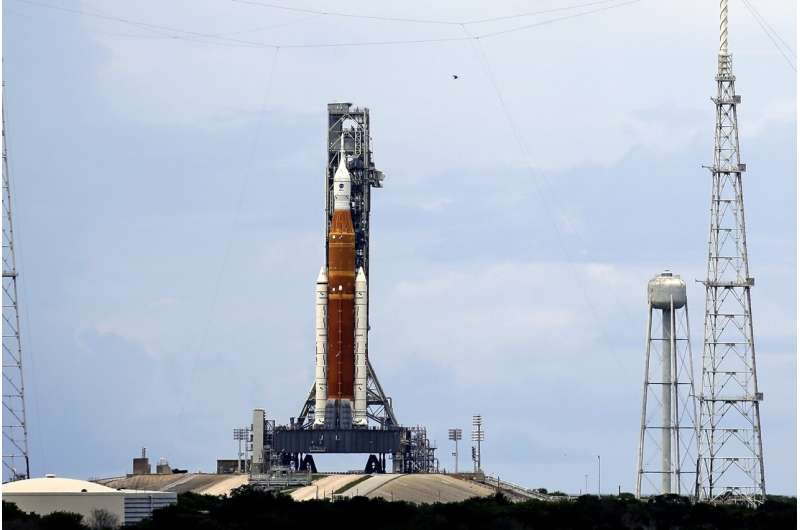
NASA's new moon rocket remained on track to blast off on a crucial test flight Monday, despite a series of lightning strikes at the launch pad.
The 322-foot (98-meter) Space Launch System rocket is the most powerful ever built by NASA. It's poised to send an empty crew capsule into lunar orbit, a half-century after NASA's Apollo program, which landed 12 astronauts on the moon.
Terran Orbital concludes final launch preparations for LunIR
Sunday, 28 August 2022 12:21 Terran Orbital Corporation (NYSE: LLAP), a global leader in satellite solutions, primarily serving the United States and Allied aerospace and defense industries, has concluded final launch preparations for LunIR. The groundbreaking lunar satellite will launch aboard NASA's Space Launch System (SLS) as part of the Artemis I mission. The rocket is set to launch from Kennedy Space Center on August
Terran Orbital Corporation (NYSE: LLAP), a global leader in satellite solutions, primarily serving the United States and Allied aerospace and defense industries, has concluded final launch preparations for LunIR. The groundbreaking lunar satellite will launch aboard NASA's Space Launch System (SLS) as part of the Artemis I mission. The rocket is set to launch from Kennedy Space Center on August Northrop Grumman's boosters ready to launch Artemis to Luna
Sunday, 28 August 2022 12:21 Two Northrop Grumman Corporation (NYSE: NOC) five-segment solid rocket boosters will help launch the first flight of NASA's Space Launch System (SLS) rocket from Pad 39B at Kennedy Space Center, Florida as early as August 29, 2022, as part of the Artemis I mission. Manufactured at Northrop Grumman's northern Utah facility, the world's largest rocket boosters will provide over 75 percent of the r
Two Northrop Grumman Corporation (NYSE: NOC) five-segment solid rocket boosters will help launch the first flight of NASA's Space Launch System (SLS) rocket from Pad 39B at Kennedy Space Center, Florida as early as August 29, 2022, as part of the Artemis I mission. Manufactured at Northrop Grumman's northern Utah facility, the world's largest rocket boosters will provide over 75 percent of the r NASA, SpaceX adjust Crew-5 launch date
Sunday, 28 August 2022 12:21 NASA and SpaceX are targeting no earlier than 12:45 p.m. EDT Monday, Oct. 3, for the launch of the agency's Crew-5 mission to the International Space Station. The date adjustment allows for extra separation with spacecraft traffic coming to and from the space station.
Crew-5 will carry two NASA astronauts Mission Commander Nicole Mann and Pilot Josh Cassada, along with JAXA (Japan Aerospac
NASA and SpaceX are targeting no earlier than 12:45 p.m. EDT Monday, Oct. 3, for the launch of the agency's Crew-5 mission to the International Space Station. The date adjustment allows for extra separation with spacecraft traffic coming to and from the space station.
Crew-5 will carry two NASA astronauts Mission Commander Nicole Mann and Pilot Josh Cassada, along with JAXA (Japan Aerospac China conducts spaceplane flight test
Sunday, 28 August 2022 12:21 On Friday, China carried out a key flight test of its reusable suborbital spaceplane, according to China Aerospace Science and Technology Corp, the nation's leading space contractor.
The State-owned company said in a news release that the spaceplane started its own propulsion system and then conducted a vertical liftoff from the Jiuquan Satellite Launch Center in northwestern China's Gobi
On Friday, China carried out a key flight test of its reusable suborbital spaceplane, according to China Aerospace Science and Technology Corp, the nation's leading space contractor.
The State-owned company said in a news release that the spaceplane started its own propulsion system and then conducted a vertical liftoff from the Jiuquan Satellite Launch Center in northwestern China's Gobi Glenn's legacy of testing spacecraft spans from Apollo to Artemis
Sunday, 28 August 2022 12:21 In early 2020, NASA's Glenn Research Center achieved a major milestone for the Artemis Program by verifying that the systems on NASA's new Orion spacecraft functioned in a simulated space environment. Project manager Nicole Smith explained, "We like to say, 'we test like we fly." The center began testing spacecraft as they fly over 50 years earlier while preparing the Centaur stage to transport
In early 2020, NASA's Glenn Research Center achieved a major milestone for the Artemis Program by verifying that the systems on NASA's new Orion spacecraft functioned in a simulated space environment. Project manager Nicole Smith explained, "We like to say, 'we test like we fly." The center began testing spacecraft as they fly over 50 years earlier while preparing the Centaur stage to transport Green light for the return to the Moon
Sunday, 28 August 2022 12:21 On 22 August 2022, NASA gave the green light for the first launch window of Artemis I. From a technical point of view, the signs are good for the first flight of the new SLS heavy-lift launch vehicle with the Orion spacecraft on board. The Artemis I mission is scheduled to last 42 days and - if the launch is successful on 29 August - return to Earth on 10 October. The Orion spacecraft, whose ser
On 22 August 2022, NASA gave the green light for the first launch window of Artemis I. From a technical point of view, the signs are good for the first flight of the new SLS heavy-lift launch vehicle with the Orion spacecraft on board. The Artemis I mission is scheduled to last 42 days and - if the launch is successful on 29 August - return to Earth on 10 October. The Orion spacecraft, whose ser A decade in the making, NASA's Artemis 1 launch is first step back to the moon
Sunday, 28 August 2022 12:21 When NASA's Artemis I mission lifts off from the Kennedy Space Center in Florida on Monday, it will mark a major step forward for the space agency that will have been 12 years in the making.
The uncrewed test flight is the first for NASA's Space Launch System, which is paired with the Orion capsule, to ensure it can eventually deliver astronauts safely back to Earth.
The launch i
When NASA's Artemis I mission lifts off from the Kennedy Space Center in Florida on Monday, it will mark a major step forward for the space agency that will have been 12 years in the making.
The uncrewed test flight is the first for NASA's Space Launch System, which is paired with the Orion capsule, to ensure it can eventually deliver astronauts safely back to Earth.
The launch i NASA awards contract to demonstrate trash compacting system for ISS
Sunday, 28 August 2022 12:21 NASA has awarded a contract to Sierra Nevada Corporation of Madison, Wisconsin, to develop and demonstrate a microgravity-compactible Trash Compaction and Processing System (TCPS) Phase B, for the International Space Station (ISS).
This contract provides firm-fixed-price core requirements and indefinite delivery/indefinite quantity, firm-fixed-price task orders, along with additional optio
NASA has awarded a contract to Sierra Nevada Corporation of Madison, Wisconsin, to develop and demonstrate a microgravity-compactible Trash Compaction and Processing System (TCPS) Phase B, for the International Space Station (ISS).
This contract provides firm-fixed-price core requirements and indefinite delivery/indefinite quantity, firm-fixed-price task orders, along with additional optio To the Moon and beyond: NASA's Artemis program
Sunday, 28 August 2022 10:49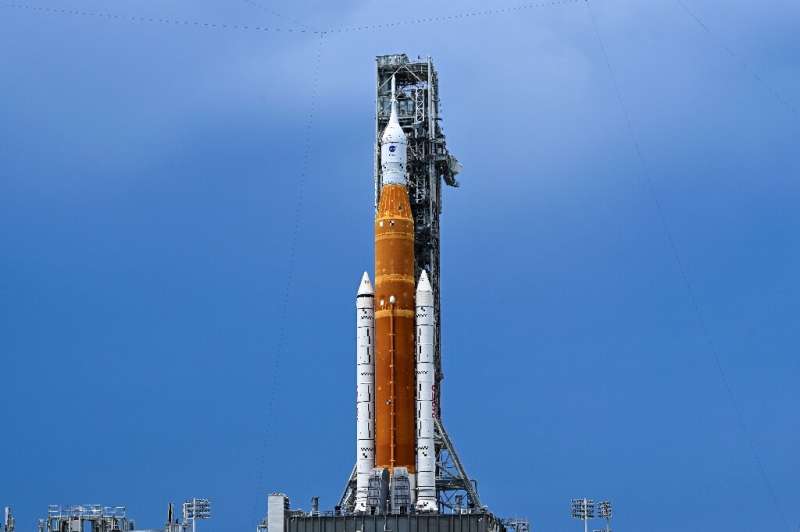
The Artemis program is NASA's plan to return humans to the Moon as a stepping stone for an eventual voyage to Mars.
Twelve men walked on the Moon between 1969 and 1972 and one of the goals of Artemis is to put the first woman and person of color on the lunar surface.
The first test flight of an uncrewed Artemis rocket is to take place on Monday.
The name Artemis was chosen to echo that of the Apollo program.
Artemis, in Greek mythology, was the twin sister of Apollo and a goddess associated with the Moon.
Here is an overview of the Artemis program:
Artemis 1: test flight
Artemis 1 is a test flight of the 322-foot (98-meter) Space Launch System rocket and the Orion crew capsule that sits on top.
Blastoff is scheduled for 8:33 am (1233 GMT) on Monday from the Kennedy Space Center in Florida.
'Sight to behold': tourists flock to Florida for Moon rocket launch
Sunday, 28 August 2022 10:48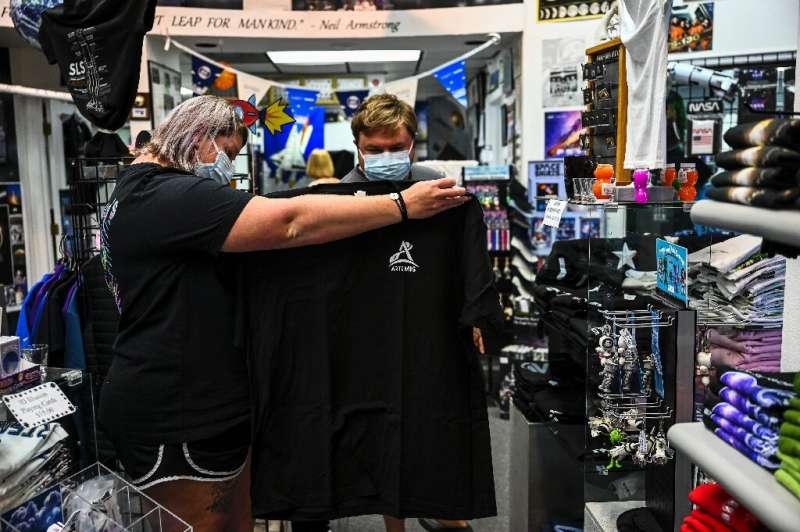
Seeing a rocket blast off to the Moon is "a once-in-a-lifetime thing to experience," says Joanne Bostandji.
The 45-year-old has traveled all the way from northern England to Florida with her husband and two children for a space-themed vacation, and they're prepared to make sure they don't miss a second of the action as NASA's newest and most powerful rocket is scheduled to launch for the first time Monday.
"The plan is to drive very early in the morning and get a spot" on Cocoa Beach, she said, not far from the Kennedy Space Center.
"I know it's going be from a far distance, but I still think it's going be a sight to behold," Bostandji told AFP as the family waited to enter a park dedicated to space exploration.
Grants fuel Dawn Aerospace propulsion development
Saturday, 27 August 2022 19:03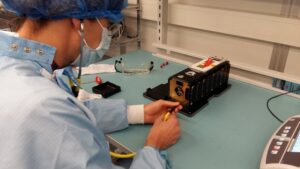
With recent grants from government agencies, Dawn Aerospace is refining its nitrous-based satellite propulsion technology.
The post Grants fuel Dawn Aerospace propulsion development appeared first on SpaceNews.
Countdown for first Artemis 1 launch attempt begins
Saturday, 27 August 2022 17:12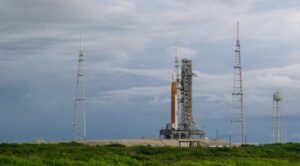
NASA started the countdown Aug. 27 for its first attempt to launch its Space Launch System rocket and Orion spacecraft for an uncrewed flight around the moon.
The post Countdown for first Artemis 1 launch attempt begins appeared first on SpaceNews.
US appeals court upholds Starlink deployment change
Friday, 26 August 2022 20:45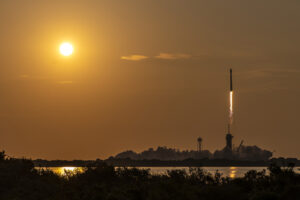
A U.S. appeals court Aug. 26 upheld the Federal Communications Commission’s year-old decision to let SpaceX deploy more satellites at lower altitudes to improve the Starlink broadband constellation’s performance.
The post US appeals court upholds Starlink deployment change appeared first on SpaceNews.
NASA Artemis1 to carry ASU CubeSat into space
Friday, 26 August 2022 18:52Use this form if you have come across a typo, inaccuracy or would like to send an edit request for the content on this page. For general inquiries, please use our contact form. For general feedback, use the public comments section below (please adhere to guidelines).
Please select the most appropriate category to facilitate processing of your request

